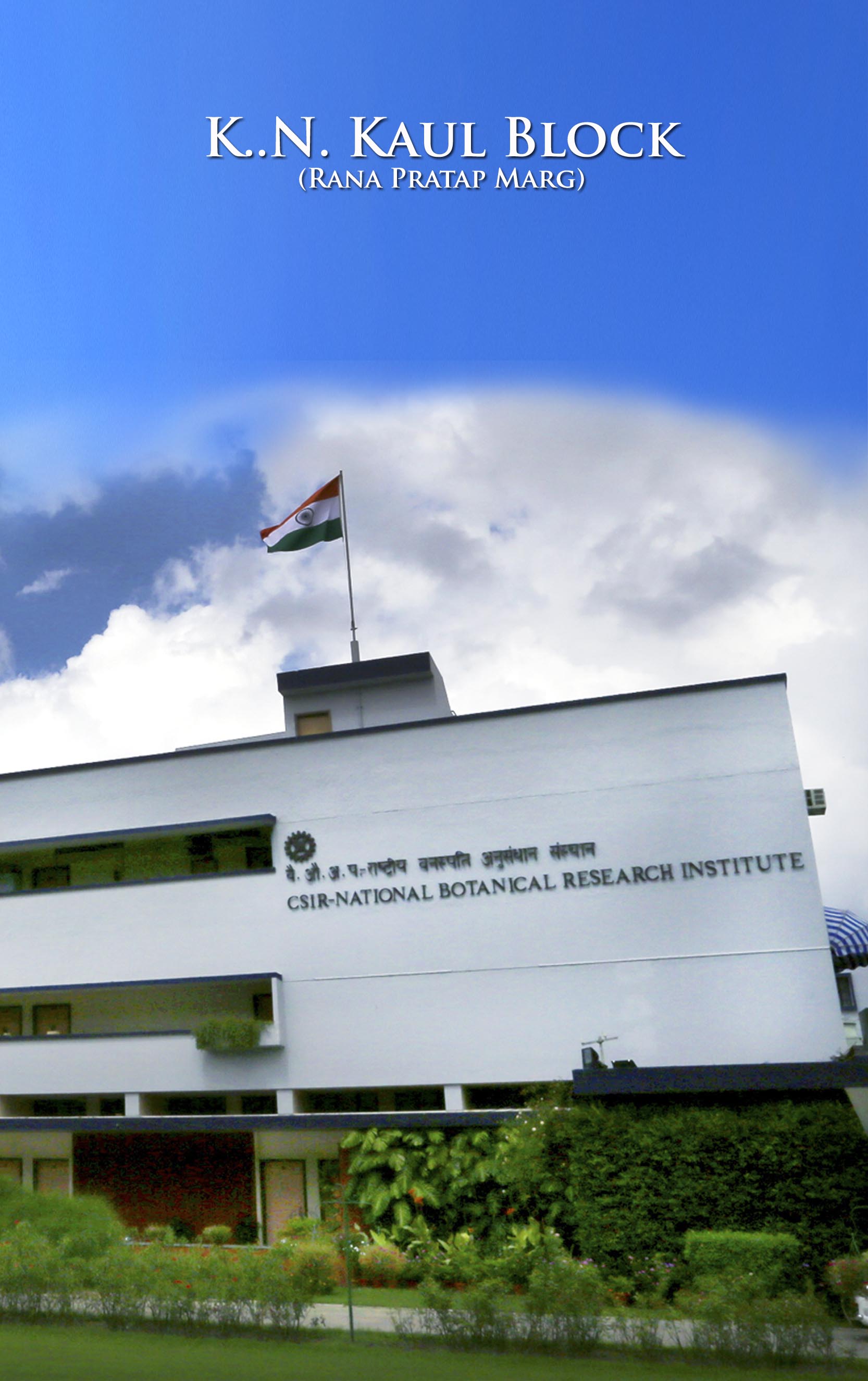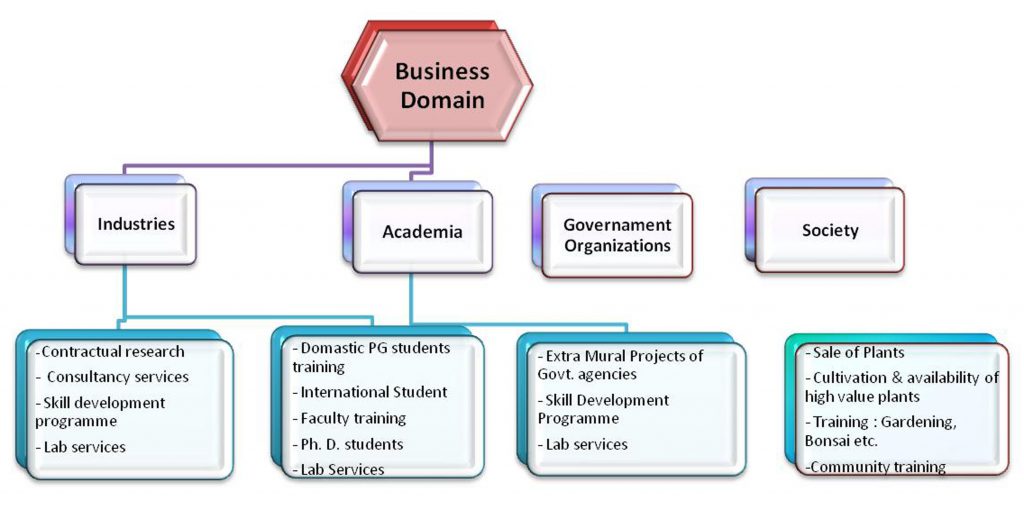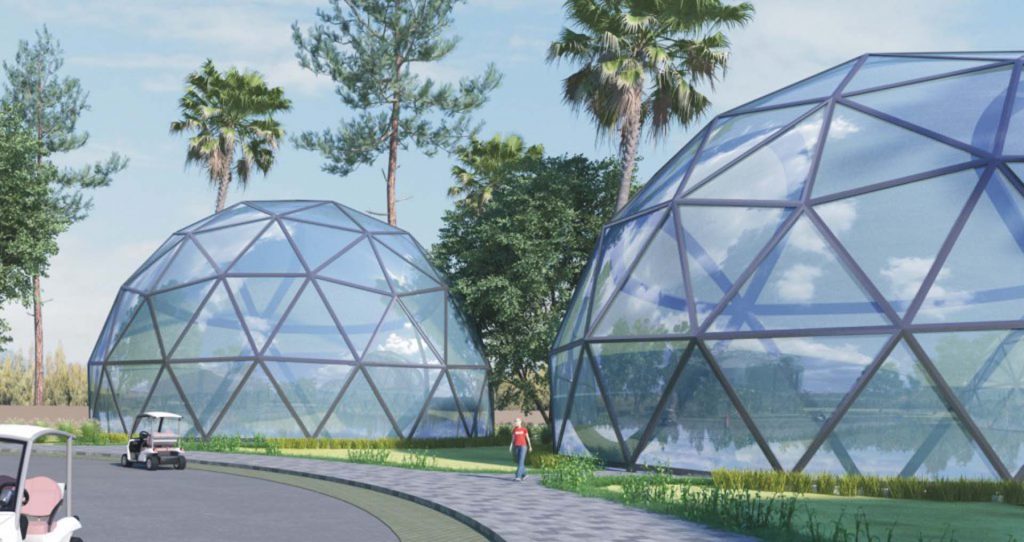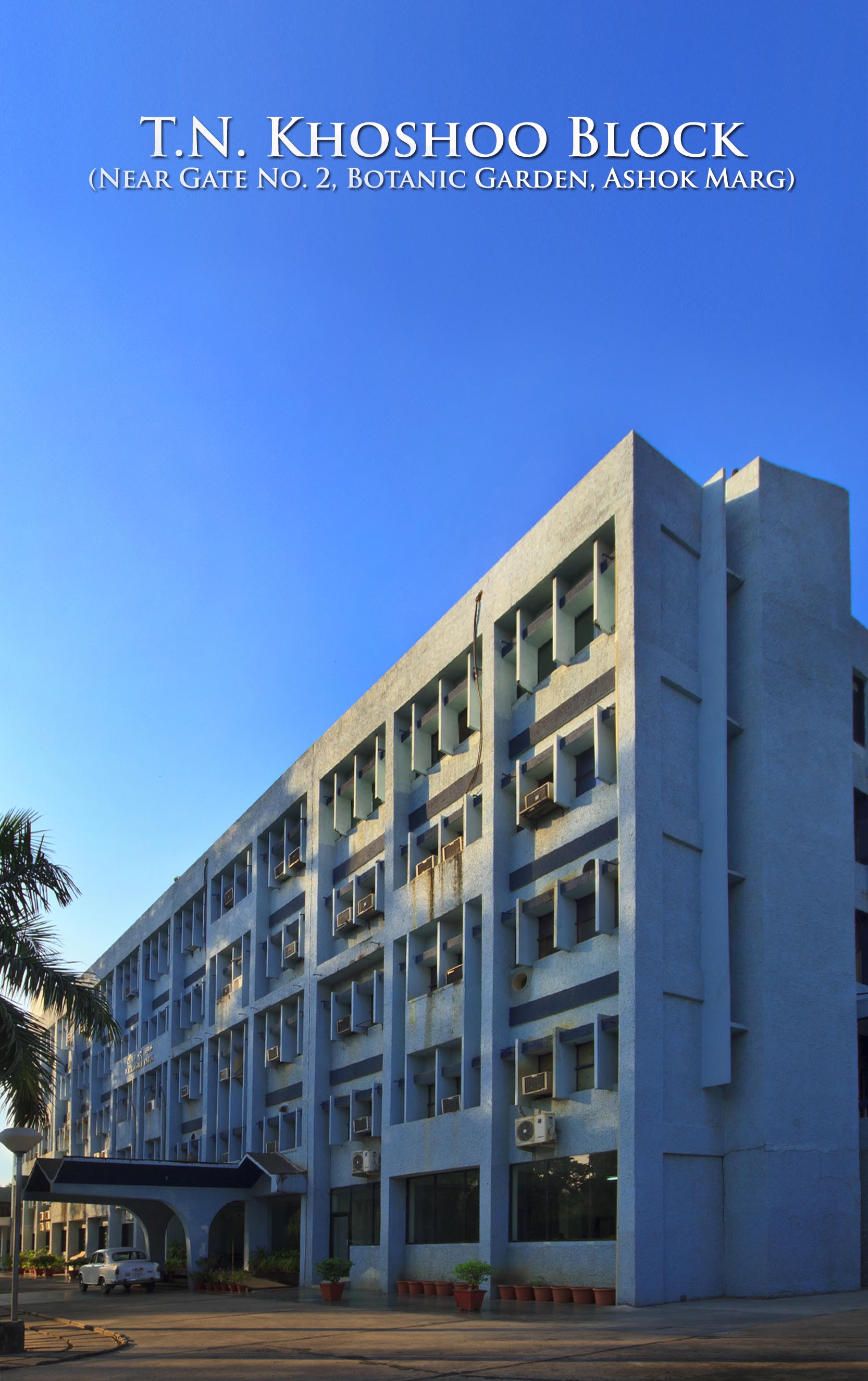
CSIR-NBRI established, in 1953, as a botanic garden has widened its horizons by committing itself to explore plants for knowledge generation and translating this knowledge for benefit of stakeholders.

Business of institute has been grouped with some illustrative examples for major stakeholders:
a) Technology transfer to the industries:
Know-how developed at the institute can reach to common people at a large scale through industries. It also gives an opportunity to industries to get new well researched products for increasing their business. A few illustrative examples of successfully commercialised technologies transferred to industries are:
– Herbal formulation for diabetes management (NBRMAP – DB)
– Herbal Soft Drink
– Nutri – Jam
– Polyherbal Dental Cream
– Herbal Gulal
– Anti Cough Herbal Formulation

b) Contractual research for industries/organisations and Consultancy services for industries/government:
Industries have benefitted from the expertise and knowledge of the institute. In last five years some important organisations who have joined hands and got benefitted in different domains of plant research:-
– Bombay Hemp Company Pvt. Ltd., Mumbai (BOHECO) Sir Dorabji Tata Trust & Atulya Krishi Foundation (AKF)
– Government of Maharashtra
– Jain Irrigation Systems Limited, Jalgaon
– Rusan Pharma Ltd., Mumbai
– Tetra Tech India Ltd., New Delhi
– HCL Foundation, Noida
– Privi Life Sciences Pvt. Ltd., Mumbai
– Government Tissue Culture Laboratory, Horticulture & Food Processing Department, Lucknow
– Development of Plant Resources, Govt. of Nepal
– Rail Coach Factory (RCF), Raebareli
– Uttar Pradesh Rajya Vidyut Utpadan Nigam Ltd, Lucknow
– UPCST, Lucknow
– Hindustan Unilever Limited, Kodaikanal, Tamilnadu
– Monsanto India Ltd., Mumbai
– Hare Krishna Movement Vrindavan Chattikara Road, Vrindavan, Mathura
– Dept. of Biology, University of Eastern, Finland – For a collaborative project on “Ozone sensitivity of the most important Indian crop and tree species” including scientists’ exchange visits (2011-2014).
– Hayal Saeed Anam Group of Companies, Head Office at Taiz, Republic of Yeman – For a feasibility study of setting up a Touch and Smell garden (September 2012).
– INSERM (Institut national de la santé et de la recherché medicale), France – Bilateral programme of CSIR and collaborative project on “Immunoprofiling of medicinal herbs from traditional leads: Studies on cellular and molecular mechanisms and development of herbal combinations (under BIOASIE Programe) (June 2013)
– Nepal Academy of Science and Technology (NAST), Nepal – For collaborative research work.
– Department of Plant Resources., Thapathali, Kathmandu, Nepal – Training to Nepalese Scientists in the area of Plant Molecular Biology. (June 2014)
– Institute of Molecular Biology and Genetics National Academy of Sciences of Ukraine – For a collaborative project on “Phylogentic grouping South Asian Lichen of the Teloschestaceae (Ascomycota) for biotechnological purposes” including scientists’ exchange visits (August 2015- Feb. 2019)
– University of Cologne, Germany – For a collaborative project and exchange visits on Light dependent flavonol biosynthesis by MYB transcription factors: Identification of interacting factors (2015-2017)
– International Rice Research Institute (IRRI), Philippines – For exploring potential collaboration on drought response in rice (February 2016).
– Natural Resources Institute (NRI), Greenwich University, London, U.K. – For discussing and developing whitefly control strategy ( December 13-14, 2016)
– Laboratoire Géomatériaux et Environment, France – For providing three month research project study and training to Dr. Ana Carolina AGNELLO on the topic titled, “Biochemical and molecular-based techniques to study microbial diversity of the rhizosphere and its application to soils of anthropized environments (September 14, 2016 to December 5, 2016)
– Department of Botany, Tribhuban University, Kahmandu, Nepal, and INSA-NAST bilateral exchange programme (March 2017)
– KfW (Kreditianstalt fur Wiederaufbau, Franfurt, Germany: For advisory consultancy on feasibility study for the programme ‘Forest and Biodiversity Management of the Himalayas’ in Nagaland (July 2017)

Presently, the institute is establishing, inter alia, a World Class Botanical Garden. CSIR-NBRI providing consultancy service to Govt. of Maharashtra for establishing a world class multi-purpose botanical garden in Ballarpur Tehsil of Chandrapur District of Maharashtra The botanical garden will be developed primarily as an educational and tourist facility in the Vidarbha region of Maharashtra. It will also provide information on the bio-resources of Vidarbha region, Maharashtra state and India to the people of Vidarbha with special emphasis on forest and plant resources. With the development of the botanical garden, it will build up livelihood of local people.
c) Skill development for industries
The aims and objectives of the skill development programmes at institute are:
– Developing employment oriented skill programmes in the core competency areas of CSIR-NBRI
– Creating a pool of skilled human resource for catering the manpower needs of plant based industries, and promoting their inter-linkages.
At present nine programmes offered are of- plant tissue culture technician, gardener, bio-inoculant producer for agriculture application, quality analyst for herbal industry, phytochemical analyst technician, soil and water testing analyst, technician for molecular biology, bioinformatics technician.
In addition to it institute also runs three green skill development programmes sponsored by Ministry of Environment and Forest and Climate Change
1) Soil pollution 2) Green Belt Development 3) Plant tissue culture
d) Lab services
Research Support
CSIR-NBRI is dedicated to provide high quality research support. Institute has state of the art infrastructure facilities and hi-end equipments and extends research support to academic institutes, R&D organizations and Industries.
Contact:
Dr. Abhishek Niranjan (a.niranjan@nbri.res.in) for analysis of samples
Dr. Arvind Jain (a.jain@nbri.res.in) for Gamma Irradiation and
Dr. K.M. Prabhukumar (prabhu.krishna@nbri.res.in) for Plant Specimen Identification
e) Certification services for industries NABL accreditation: Institute also offers advisory consultancy in this domain.
a) International students’ training
b) Domestic PG students’ training up to 1-6 months period
c) Ph.D. Students’ Services
d) Lab services
e) Short-term training programmes for faculty members
Institute undertakes research funded by various organisations with definite objectives and deliverables
a) Extra-mural projects of Government agencies
b) Skill development programmes for Government employees
c) Lab services for Government Departments
Many activities of institute have direct interface with people. They take benefit from following services:
a) Sale of plants and other products
b) Captive cultivation of high value plants for product development and sale
c) Income from lab to land technology transfer through community-based initiatives: Bonsai making, Gardening, Kitchen garden
d) Morning walk facility : Garden of institute is open for morning walkers during early morning hours.
Contact
Dr. Manish S Bhoyar
Senior Scientist
Technology Transfer & Business Development Division
CSIR-NBRI, Lucknow
Email: manish.bs@nbri.res.in
Phone No.: 0522-2297984
